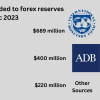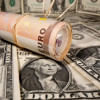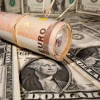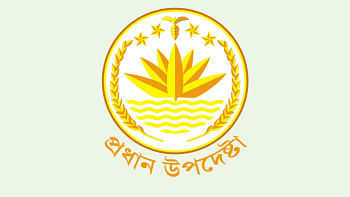Forex reserves to get $2b boost

Bangladesh's foreign currency reserves are set to receive as high as $2 billion this month, which may send the total to nearly $21 billion, handing a much-needed relief to the US dollar supply.
On Wednesday, the reserves went up by $538 million to $19.2 billion from a week ago, showed central bank figures prepared based on the formula of the International Monetary Fund (IMF). This is the highest level of forex reserve holdings in the past one month.
In a major boost, $1.65 billion is expected to be added to the reserves from the IMF and the World Bank.
The IMF may release $1.15 billion in the third instalment of its $4.7 billion loan in the last week of June, said Finance Minister Abul Hassan Mahmood Ali last month.
The WB is going to provide $500 million in budget support also by the end of June.
This means the IMF and the World Bank's support would lift the reserves to at least $20.85 billion. It was above this level two months ago and at more than $21 billion in March.
Last week's improvement comes a month after the central bank relinquished its control over the rate-setting mechanism and introduced a more flexible exchange rate regime.
Central bank officials say the forex reserves are on the rise thanks to several reasons, including the crawling peg.
On May 8, the banking regulator introduced the Crawling Peg Mid-Rate to facilitate the purchases and sales of foreign currencies, allowing banks to trade US dollars freely at around Tk 117.
On Tuesday, the highest interbank exchange rate stood at Tk 118 per dollar.
Bankers are charging importers more than Tk 118 per USD. It is also offering the same rate to remitters, industry insiders said.
The relaxed rules governing offshore banking have been another reason behind the pick-up in the reserves, they added.
In March this year, parliament passed the Offshore Banking Act 2024 to give a boost to the country's desperate efforts to improve the US dollar supply.
The reserves have been declining sharply since the beginning of the Russia-Ukraine war as the conflict sent the prices of commodities such as oil and gas higher, hurting import-dependent nations such as Bangladesh.
However, mismanagement in the forex market, frequent policy changes by the central bank, and the gap between the official exchange rate and the unofficial one are also to blame. Since August 2021, forex reserves have fallen by $24 billion.
Speaking to The Daily Star yesterday, Monzur Hossain, a research director of the Bangladesh Institute of Development Studies, described the accumulation of more than half a billion dollar to the reserves in the span of a week and the impending $1.65 billion loans from the IMF and the WB as a good piece of news for the country.
He, however, added it would be too early to say whether the current forex crisis has eased.
He explained Bangladesh's financial account has been in negative territory for long. The deficit will have to be narrowed by taking foreign loans or attracting foreign direct investments, said the economist.
"If we can reduce the financial account deficit, it will be good news for the country."
The private sector's short-term foreign debt made a turnaround for the first time in more than a year in April. However, the FDI flow dropped 14 percent year-on-year last year, central bank data showed.
Hossain said the crawling peg would narrow the US dollar rate between the formal market and the informal market and bring more foreign currencies into the official channel.
The exchange rate that has been fixed through the crawling peg is close to the actual exchange rate, the economist added.


 For all latest news, follow The Daily Star's Google News channel.
For all latest news, follow The Daily Star's Google News channel. 








Comments